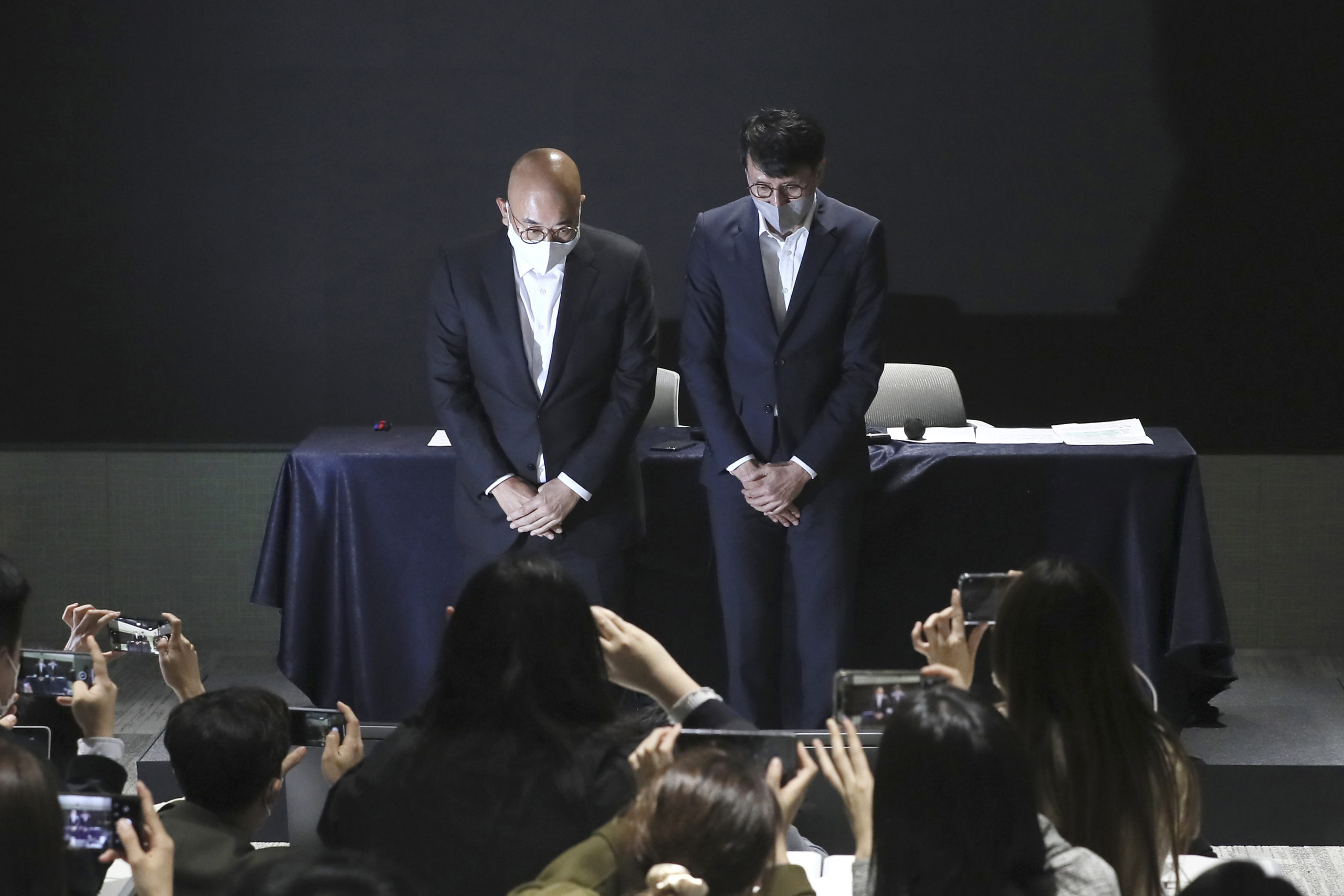 1
1 1
1
SEOUL, South Korea (AP) — A top executive of South Korea’s largest mobile chat app, Kakao, stepped down on Wednesday over a widespread service outage that triggered an outpouring of complaints in a country that is heavily reliant on such technology.
Namkoong Whon, who became Kakao’s co-CEO in March, said he will resign to focus on his role as the leader of the company’s emergency task force for solving the technical problems exposed by the outage, which was caused by a fire at a data center near Seoul on Saturday.
The fire initially paralyzed most of Kakao’s services, causing huge disruption in a country where millions of people rely on the apps to chat with friends, wire money, and hail taxis. Critics say the severity of the outage and Kakao’s slow recovery efforts highlighted the company’s poor backup systems and its overreliance on outsourced servers.
Kakao said most of its services were operating normally as of Wednesday morning. SK C&C, which hosts Kakao’s servers at its data center in Pangyo, reportedly resumed providing full levels of electricity to those servers earlier on Wednesday after restoring the damaged systems.
“Because of the data center fire, I feel more miserable than ever and take to heart my grave responsibility. I will step down to demonstrate Kakao’s willingness for renovation and change,” Namkoong said in a news conference.
Kakao’s sole CEO is now Hong Eun-taek. He said the company is investing 460 billion won ($322 million) to build its own data center in the city of Ansan, which it plans to complete within a year. The company also plans to establish another data center in nearby Siheung by 2024.
“We have learned our lesson from the fire, and our own data centers will be built as facilities that will be safe from fires and natural disasters like earthquakes, tidal waves and typhoons,” Hong said during the news conference.
According to market analysis firm WiseApp, Kakao’s free chat app had around 45 million active users as of April, a huge presence in a country with a population of around 51 million. The company has used the popularity of the app to branch out to banking, online shopping and Uber-like taxi services in recent years. Its app also has been part of the country’s COVID-19 response, including reservations for vaccines and use of QR codes for infection tracing.
Kakao’s chat users had dropped to around 39 million during the outage in the weekend as people began using other alternatives such as Facebook’s Messenger, Telegram and Naver’s Line, WiseApp said.
South Korean President Yoon Suk Yeol said Kakao’s service outage also exposed the problems of its dominant market presence and added that the country’s antitrust watchdog was examining competition issues.
“If a market becomes distorted by a monopoly or a severe oligopoly, especially to the extent where the (services) begin to function like a national infrastructure, the government should of course respond with necessary measures to protect the interests of people,” Yoon said Monday.